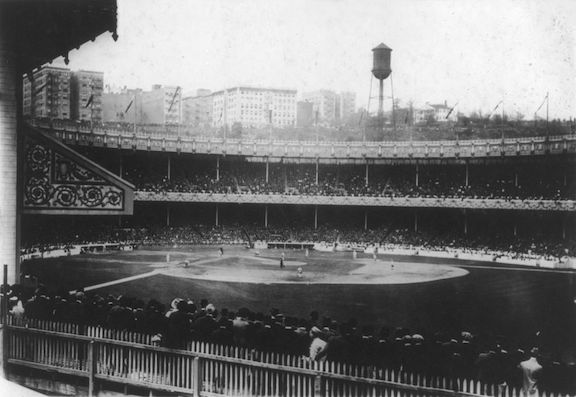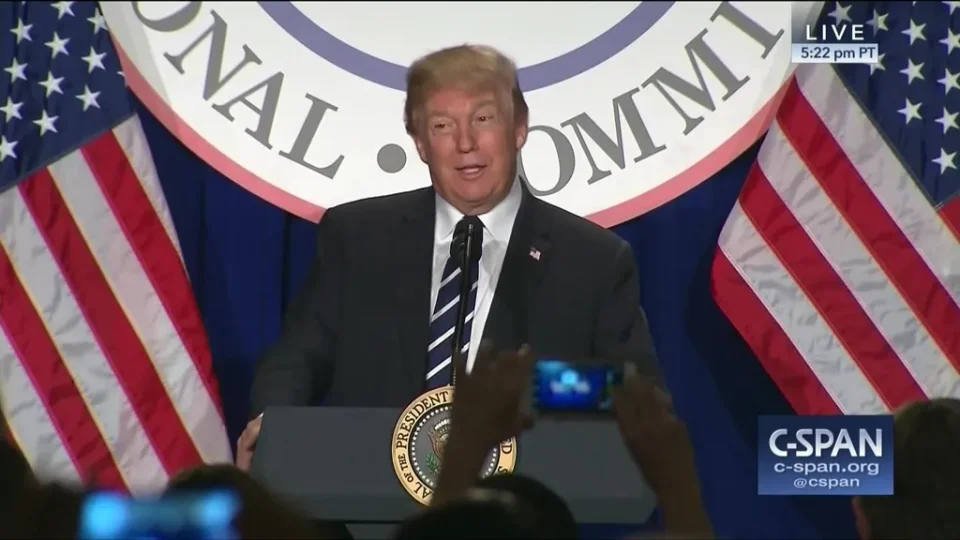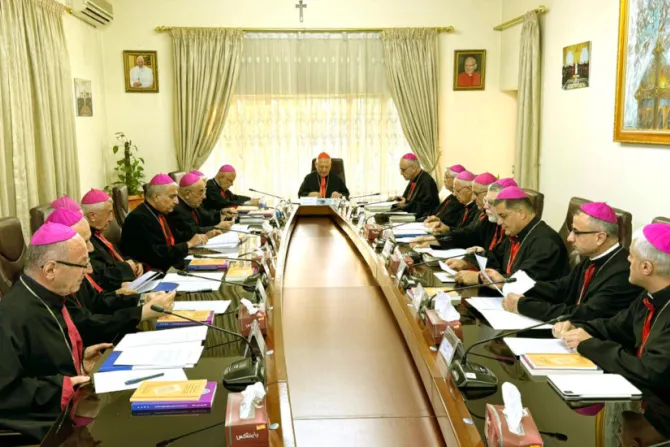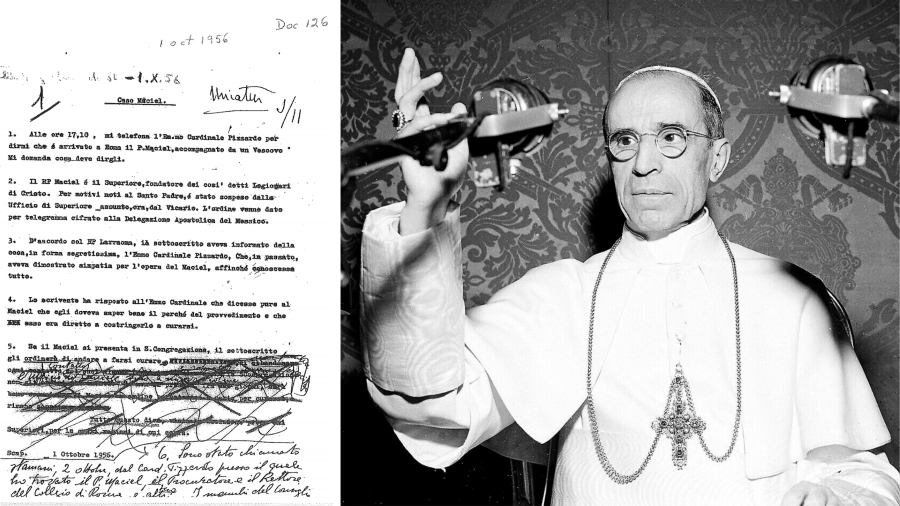Photo: Finite space: the Polo Grounds, 1913
Rev. James V. Schall, S.J., The Catholic Thing, Dec. 5, 2017
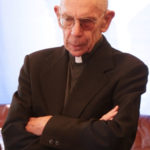 In Latin, the word limes meant a property boundary, often marked by a stone/sign. In the second century A.D., the far-flung limits of the Roman Empire stretched from Scotland to Arabia. In English, we have many expressions – “age limits,” “speed limits.” “limitless opportunities,” “a limited time only,” and “city limits.” The title of a Schall book is: At the Limits of Political Philosophy.
In Latin, the word limes meant a property boundary, often marked by a stone/sign. In the second century A.D., the far-flung limits of the Roman Empire stretched from Scotland to Arabia. In English, we have many expressions – “age limits,” “speed limits.” “limitless opportunities,” “a limited time only,” and “city limits.” The title of a Schall book is: At the Limits of Political Philosophy.
The point of a limit is that a thing is what it is, not something else. It cannot be anything else or everything else but only what it is limited to be – this thing, not that thing. We do not, in fact, want something continually bypassing its limits to become what it is not.
The limits of territorial waters indicate how far – three miles, 200 miles – the jurisdiction of a country’s laws extends into the ocean, to where the “high seas” begin. “Beyond the limits of our endurance” indicates what we can reasonably expect someone to suffer or accomplish. We might project that the 100-meter dash will be run in nine seconds, but not in two seconds.
The word, limits, has several good synonyms – frontiers, borders, and boundaries. “Good borders (fences) make good neighbors” because little room is left for dispute about who owns what. If the boundary between yours and mine is clear, both of us have the liberty and responsibility to make our property prosper. Border and boundary disputes occasion much feuding, litigation, strife, and even war.
The Greeks thought that the word “infinite” meant an unformed chaos. Greek temples were enclosed, limited spaces. Only later in medieval usage did the word “infinite” come to refer to God who is said to be without or beyond limits, but still not a chaos. God was the perfection to which all limited things pointed. He was not their negation.
In his 1980 book, A General Theory of Authority, Yves Simon remarked that, in order for us to be ourselves, what each of us is, we cannot be anything else. We can know what is not ourselves. Indeed, this knowing is why we have minds. But we can only “be” ourselves. This uniqueness of each substantial thing is why we cannot predicate one person of another. We cannot say: “John is Joe.” If the proposition, “John is Joe” is true, it means there is no real John or Joe.
Why is it necessary to think about limits, about finiteness and boundaries? Primarily, I think, because some of us, at least, look upon our given limits as somehow a defect in our being instead of the necessary condition for us to exist in the first place. We are the beings who are limited by death, or at least it appears that we are. In the resurrection, we do not become someone else other than the same self once begotten and born into this world. Eternal life does not absorb us into the all. We do not become God or vice versa.
In other words, it is all right to be a limited being. Room exists in the universe for more than God. Most disorder in this same universe occurs when a limited being strives to operate beyond the boundaries of its own being. Owen Francis Dudley’s book title – Will Men Be Like Gods? – asks a legitimate question. For men do indeed strive to be like gods; that is, creatures without the limits of their own being, beings who will themselves strive to define the distinction of good and evil rather than accept it from God.
Aquinas said that the only way we could have a universe is if we had in it differing beings of greater and lesser worth. If all things are equally identical, we cannot have a universe. The fact that things are limited to be what they are means that we should not be envious of what we are not. Different things have their proper places.
A common good means that we allow all things to flourish within the given limits of what they are. Again, we can rejoice that we are not other than what we are in our particulars. All disorder in the universe of men is the result of attempting to be other than what each one is.
Will men be like Gods? They will often strive to be, as the history of our kind shows. Will they succeed? They will succeed in destroying, along with their world, what they are in their pursuit of what they cannot be. The limits of our being enable us to be what we are and not someone or something else. We do not give ourselves what we are. It is given to us.
We have scientific endeavors to extend the length of our days. If they succeed, what we will have are not old men, but very, very old men. We will long for the original limits.
___________________________
© 2017 The Catholic Thing. All rights reserved. For reprint rights, write to: info@frinstitute.orgThe Catholic Thing is a forum for intelligent Catholic commentary. Opinions expressed by writers are solely their own.
James V. Schall, S.J., who served as a professor at Georgetown University for thirty-five years, is one of the most prolific Catholic writers in America. Among his recent books are The Mind That Is Catholic, The Modern Age, Political Philosophy and Revelation: A Catholic Reading, Reasonable Pleasures, Docilitas: On Teaching and Being Taught, and Catholicism and Intelligence.




